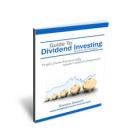I can’t remember having experienced this much pessimism before. 2008-09 was different. Back then it was fear more than pessimism, fostered by investors being hopelessly unprepared for what happened. The present crisis is well advertised, causing more pessimism than actual fear; however, whatever you call it, the current level of gloom and doom is quite simply overwhelming. Marc Faber must be having a field day! I am writing these lines from Geneva. In a meeting earlier today I learned that a leading Swiss private bank currently allocates approximately 25% each to gold, cash and alternatives. In other words, three quarters of its client portfolios generate little or no income. Astonishing!
Meanwhile my brother-in-law, who is a die-hard value investor, told me of a trip he made to Germany last week in search of new investment ideas. He met with nine companies; all solid German businesses, most of them industrial. Not one talked about business being weak or weakening. Most of them asked the question: What’s wrong with you finance guys? Are you trying to destroy the world?
I shall be the first to admit that we are facing unprecedented challenges. Europe has rarely been up against stronger headwinds than now. It could fall into a prolonged recession, possibly even depression, and the eurozone could quite conceivably disintegrate altogether. However, as the French economist Charles Gave of GaveKal Research is fond of saying, and I paraphrase (without being able to do the French accent convincingly), “the French economy isn’t competitive but lots of French companies are”.
The best performing stock in our global equity fund in recent months has been Hermes, the French luxury goods maker (which, for the record, was sold a couple of weeks ago). Charles Gave’s point is that we live in a world where trade recognises few borders. Hermes may be a European brand, but the world is its market place. A European recession will only have limited effect on its fortunes. Likewise with dozens of other European companies.
Extrapolate at your peril
Why are investors not capable of recognising this fact? Because most of us tend to extrapolate and because we are all subject to a phenomenon that behavioural analysts call recency; we assign more value to recent events than we do to more distant ones.
Let me provide you with one example. As you can see from chart 1 below, emerging markets have offered…






